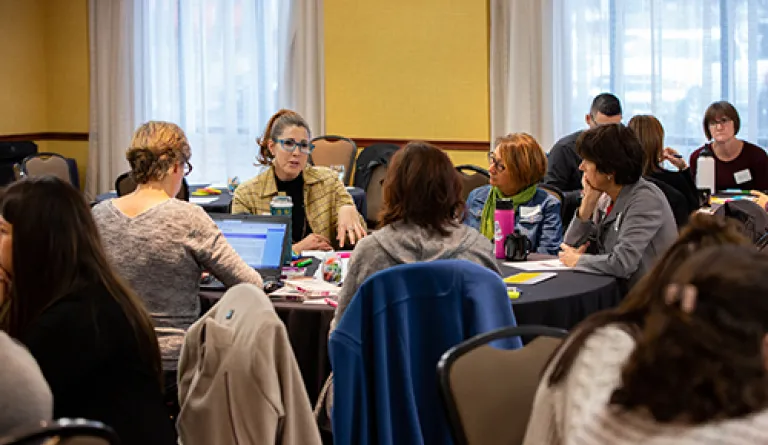Listen>Learn>Lead: Design Sprints and Redefining Divorce

When I first considered getting divorced, I knew that it was going to be difficult emotionally. We had young children, I was going through chemotherapy, and my ex-husband did not want to get divorced. What I did not know, however, was just how difficult my divorce would be procedurally.
Neither my ex-husband nor I were financially able to hire an attorney so we both proceeded to represent ourselves. It became clear early on that navigating my way through the divorce process would be no easy task. The first hurdle involved filing the correct paperwork in court, which was difficult, counterintuitive, and left me feeling uncertain about how to proceed. I initially reached out to Colorado Legal Services for help on my case, but they were unable to adequately work on my case due to the large number of cases they were already working on. On a few occasions Colorado Legal Services pushed my case further back in the line to make way for more time-sensitive cases, which made me feel unimportant and powerless. They ultimately referred me to Metro Volunteer Lawyers, for which I am truly grateful. For a small fee, Metro Volunteer Lawyers answered many of my questions, assisted me with the necessary paperwork, and even walked me through the process during the hearing. Unfortunately, they were not able to provide me with full representation.
For the parts of the process where I was represented by Metro Volunteer Lawyers, my ex-husband understandably felt apprehensive about the divorce. Without representation or guidance, he developed a negative attitude toward the process, imagining the worst-case-scenario and thinking he was getting the short end of the stick on the issues of support and custody. This led him to fight the divorce even harder, including refusing to sign the divorce papers for months and needing to be subpoenaed just to show up for court. The lack of representation affected all people associated with the case as the judge was often forced to explain parts of the process to him while in court. While everything worked out in the end, I believe the process would have moved much more smoothly if we had gotten the representation we needed from the beginning.
In early October 2018 IAALS contacted me via letter with an invitation to participate in their design sprint. I was admittedly a bit skeptical because I was being asked to discuss an incredibly personal experience with attorneys, judges, and other strangers. However, after I spoke with someone at IAALS and she explained that this would be a judgment-free experience where people could come together, share their ideas, and work toward creating a better divorce process, I felt as though I had a duty to participate. And I couldn’t have been more pleased or surprised by what I experienced. The format of the design sprint led to effortless and comfortable interactions with the other participants, allowing us to bond over sharing our experiences, which led to us comfortably brainstorming solutions. It was wonderful to talk about this process with people who actually have experience with divorce and who truly care about making the process of divorce easier on people and their families.
By the end of the design sprint, I felt as though my opinion mattered. We collectively were able to come up with valuable insights on how to improve the divorce process. For example, my group discussed the creation of an organization that specializes in family law and divorce in each metro area of the city, which would provide the badly needed resources we all felt were unavailable during our divorce. I understand that it will take a lot of work for the solutions we created to be realized, but just discussing my experience in such an open, accepting setting gives me hope for the future. I am incredibly grateful to IAALS for allowing me to participate in their design sprint, and I am encouraged that their work will help change the divorce process for the better.
